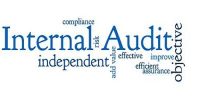Objectives of the Audit Committee
Audit committee relies on management to run the daily operations of the business. The Board’s role is better described as oversight or monitoring, rather than execution.
Objectives of the audit committee typically include-
(a) Overseeing: Overseeing the financial reporting and disclosure process, hiring, performance and independence of the external auditors, the performance of the internal audit function.
(b) Monitoring: Audit committee monitors choice of accounting policies and principles and the internal control process.
(c) Discussing risk management policies and practices with management: The audit committee shall –
- Monitor the financial reporting process,
- Monitor the effectiveness of the company’s internal control, internal audit where applicable, and risk management systems;
- Monitor the statutory audit of the annual and consolidated accounts;
- Review and monitor the independence of the statutory auditor or audit firm, and in particular the provision of additional services to the audited entity.
(d) Oversight of financial reporting and accounting: Audit committees typically review financial statements quarterly and annually in public companies. In addition, members will often discuss complex accounting estimates and judgments made by management and the implementation of new accounting principles or regulations.
(e) Monitoring the external auditor: Audit committees typically approve the selection of the external auditor. The external auditor reviews the entity’s financial statements quarterly and issues an opinion on the accuracy of the entity’s annual financial statements.
(f) Assessing regulatory compliance: Audit committees discuss litigation or regulatory compliance risks with management, generally via briefings or reports from the General Counsel, the top lawyer in the entity.
(g) Operating risk management: The policies and practices used by the entity to identify, prioritize, and respond to the risks (or opportunities) are typically discussed with the audit committee. Audit committee involvement in non-financial risk topics varies significantly by an entity.















